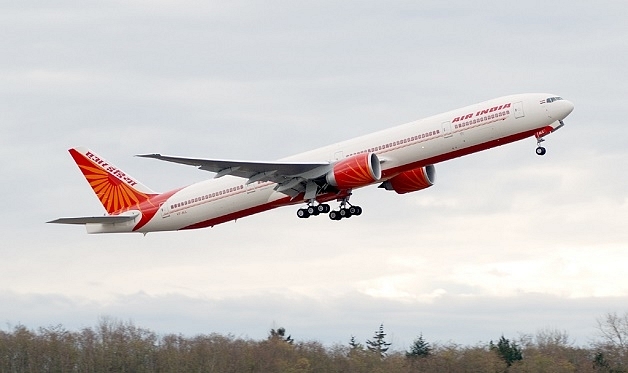Business
Why Your Flight Ticket Is Not Getting Cheaper

Fuel and taxes constitute 45 per cent of an air ticket, airport charges exceed 20 per cent on long distance flights and make up more than 30 per cent of the airfare on shorter ones. Why is civil aviation subject to such high taxation?
The economic potential of many good tier two cities like Mysore, Puducherry, Kanpur, etc. have been stunted by the lack of speedy connectivity with the economic hubs of our country. One can be certain that the Land Acquisition mess won’t be solved anytime in the near future. This decreases the possibility of speeding up connectivity through railways or bigger highways. The only hope is Air Travel.
Let me take the example of Mysore. Although it has been on the nation’s aviation map since the 1950s, it has extremely irregular services and air connectivity has been restored fairly recently. So what’s preventing Mysore, which is about an hour’s travel by air from Bangalore from being properly connected by Air? The short answer is the usual- Bad Government Policy.
The Union Government through the Aviation Ministry and the DGCA (Directorate General of Civil Aviation) has succumbed to a lobby of already existing airlines and stood silent as a cartel was formed. This cartel has lobbied the DGCA to create ever more complex rules to prevent entry of new players into their ‘cash cow’ markets such as international flying. Air Asia India’s CEO Mittu Chandiliya rightly said –
I believe in free markets and open skies, but if you look at the policies we have in place, I don’t think we have that at all.
Our policymakers, in the false belief that airports and air travel isn’t useful to the ‘poor’ have over the years created and enforced an extortive tax policy. The Union Government levies an 18% duty on Aviation Turbine Fuel (ATF) which includes 8% excise duty and 10% customs duty. A weighted average of the taxes the states levy is around 22%. So airlines end up paying around 28% of fuel expenditure as taxes. Compare this with China which has no consumption tax on Jet Fuel.
As Captain Gopinath writes in the ET –
..fuel and taxes constitute 45 per cent of an air ticket, airport charges exceed 20 per cent on long distance flights and make up more than 30 per cent of the airfare on shorter ones..
What this ensures is – Airlines use countries like Singapore, Sri Lanka and Bangladesh for their MRO (Maintenance, Repair and Overhaul) and many a times through clever scheduling- refuelling aircrafts. We are not only losing a lot of jobs due this policy, but the government is also losing a lot of revenue that could have been generated from these activities.
As usual, the response of the Ministry of Aviation is proposing a uniform ATF tax for the entire union which will subsume state taxes. Its been proposing one for about 7 years atleast now. Nothing has and ever will come out of it as states are demanding that fuel taxes be included in the exempted list for the Goods and Services Tax. That doesn’t stop them from trying though. Recently, the Aviation minister started requesting states directly to reduce such taxes. It has started bearing some fruits in Andhra Pradesh where VAT on ATF was cut to 1%.
Some other states like West Bengal, Jharkhand, Chhattisgarh and Madhya Pradesh have tried this too and it is showing expected results i.e. more passengers, scheduled flights and newer routes. It has also predictably led to fall in passenger fares. And guess what, most of the new flights are to small towns and cities as they don’t levy state taxes on ATF in these places. (The very justification of the infamous 5/20 rule and ‘domestic credits’ is to increase domestic connectivity to smaller towns and cities).
This increased connectivity is not only contributing to the local economy in terms of an increased tourism and hospitality sector, it is also enabling the advent of e-commerce in these towns and cities. It also enables local manufacturers to better integrate into national and global supply chains. A win -win aint it?
Introducing ElectionsHQ + 50 Ground Reports Project
The 2024 elections might seem easy to guess, but there are some important questions that shouldn't be missed.
Do freebies still sway voters? Do people prioritise infrastructure when voting? How will Punjab vote?
The answers to these questions provide great insights into where we, as a country, are headed in the years to come.
Swarajya is starting a project with an aim to do 50 solid ground stories and a smart commentary service on WhatsApp, a one-of-a-kind. We'd love your support during this election season.
Click below to contribute.
Latest